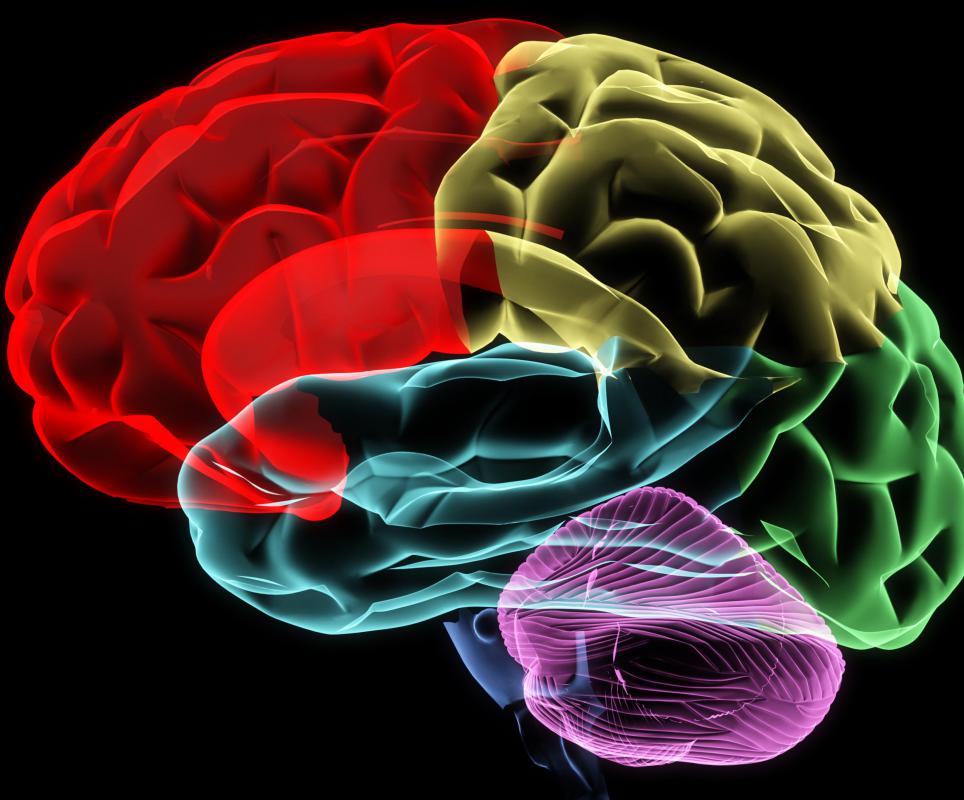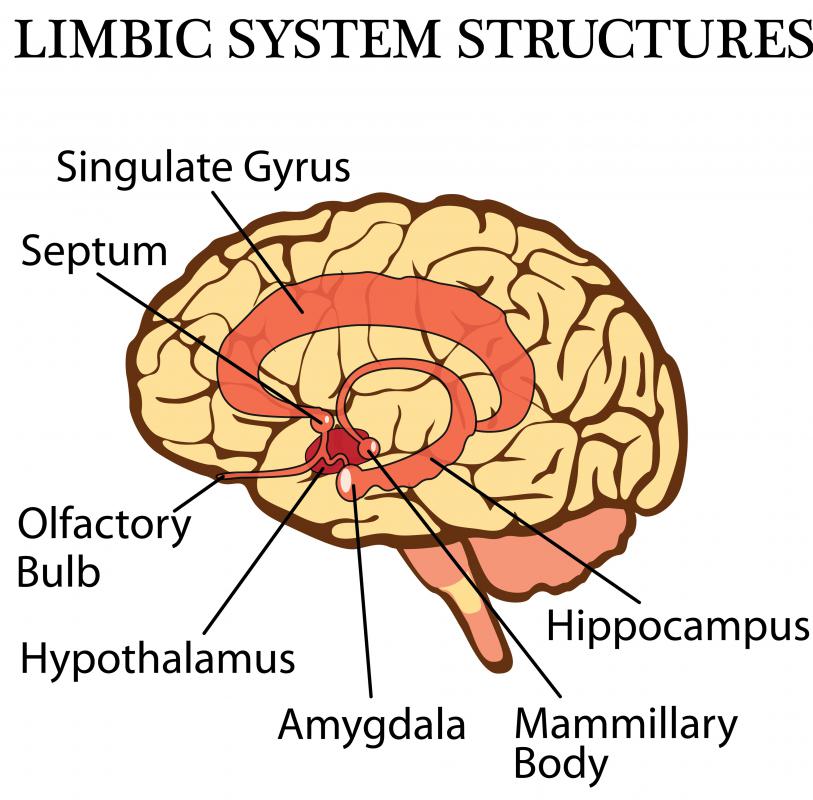At WiseGEEK, we're committed to delivering accurate, trustworthy information. Our expert-authored content is rigorously fact-checked and sourced from credible authorities. Discover how we uphold the highest standards in providing you with reliable knowledge.
What is the Hypothalamus?
The hypothalamus is the small cone-shaped structure within the brain that plays a central role in controlling our autonomous nervous system (ANS), responsible for regulating homeostatic metabolic processes in the body. Examples of homeostatic processes include sleeping, eating, thirst, blood pressure, body temperature, and electrolyte balance. The hypothalamus is located under the thalamus, one of the most evolutionarily ancient parts of the human brain, which is located directly at its center. Being as old as it is, this region is possessed by birds, reptiles, and mammals alike, though its structure in mammals is more complex than that of reptiles and birds.
The hypothalamus controls the nervous system by synthesizing and releasing neurohormones at regular intervals. Different neurohormones represent distinct signals to the rest of the nervous system. The hypothalamus serves as an interface between the limbic system, endocrine system, and the autonomous nervous system. One well-known hormone released by this region is oxytocin, known to play a role in both romantic love and female lactation.

Communicating with the autonomous nervous system via neural signals and the endocrine system via endocrine signals (chemical signals which travel through the bloodstream), the hypothalamus is an axis around which a variety of complex systems within mammals evolved.
Conceptually speaking, the main purpose of this area within humans and other mammals is to preserve the appropriate metabolic atmosphere necessary for everything else within the mammalian body to function. Unlike cold-blooded animals such as reptiles, mammalian bodies constantly maintain a strict set of metabolic conditions separating the internal chemistry of the animal from the external chemistry of the surrounding world. Because the hypothalamus is so evolutionarily old, it has had much time to be fine-tuned by the ongoing process of natural selection. Thus, hypothalamic disorders usually come from brain tumors rather than being present from birth (since hypothalamic disorders so severely curtail an organism's ability to reproduce, most inborn disorders of a hypothalamic nature have already been selected out of the gene pool).
AS FEATURED ON:
AS FEATURED ON:















Discussion Comments
At birth my daughter slept eight hours a day. We call her our little heater because when she goes into a deep sleep her body temp rises 1-1.5 degrees consistently. at age 5 she now only requires for to six hours of sleep.
For as long as I could remember she has played with herself sexually. Being a mom, I have taken her to the doctor to get her checked and they said this is normal. But I feel it is not. Could this be symptoms of a disorder.
The hypothalamus also controls all the other glands.
Good article.
How could oxygen deprivation at birth affect the hypothalmus?
sir hypothalmus form ADH and oxytocin and dn snd to posterior pituitary where it is stored. myquestion is why not hypothalamus directly secrete it? and wt z importance of storage in posterior pituitary?
Post your comments